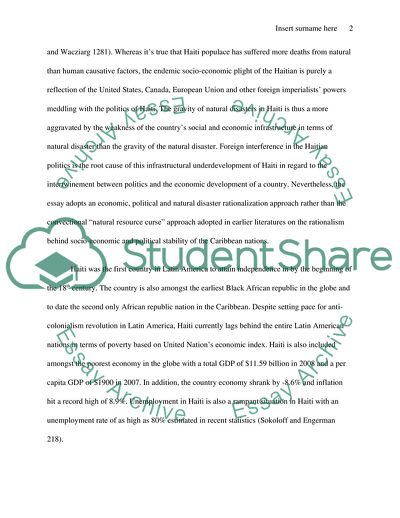Cite this document
(Haiti: Election, Democracy, Economy and Natural Disasters Article, n.d.)
Haiti: Election, Democracy, Economy and Natural Disasters Article. https://studentshare.org/geography/1787022-haiti-electiondemocracyeconomy-natural-disasters
Haiti: Election, Democracy, Economy and Natural Disasters Article. https://studentshare.org/geography/1787022-haiti-electiondemocracyeconomy-natural-disasters
(Haiti: Election, Democracy, Economy and Natural Disasters Article)
Haiti: Election, Democracy, Economy and Natural Disasters Article. https://studentshare.org/geography/1787022-haiti-electiondemocracyeconomy-natural-disasters.
Haiti: Election, Democracy, Economy and Natural Disasters Article. https://studentshare.org/geography/1787022-haiti-electiondemocracyeconomy-natural-disasters.
“Haiti: Election, Democracy, Economy and Natural Disasters Article”. https://studentshare.org/geography/1787022-haiti-electiondemocracyeconomy-natural-disasters.


